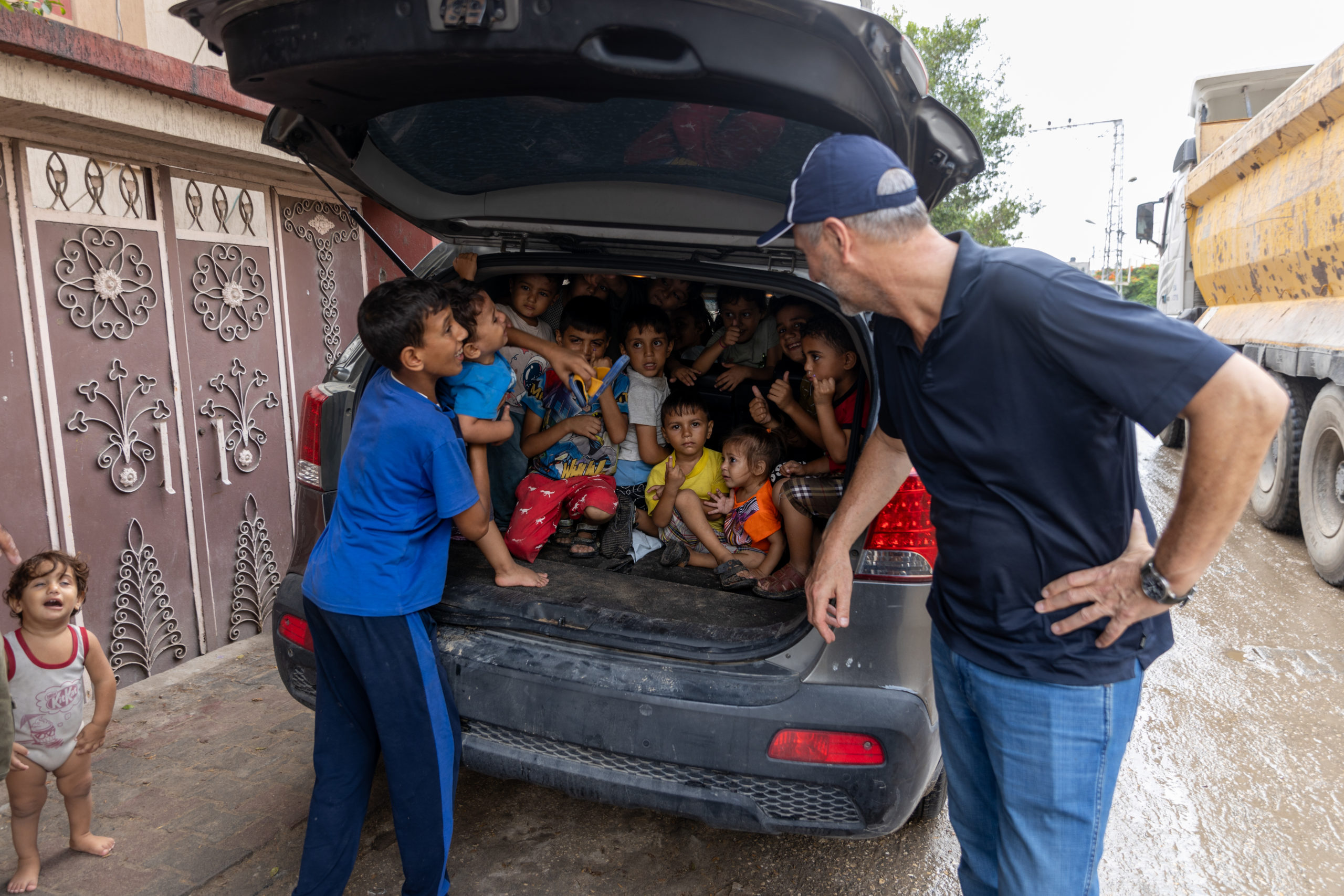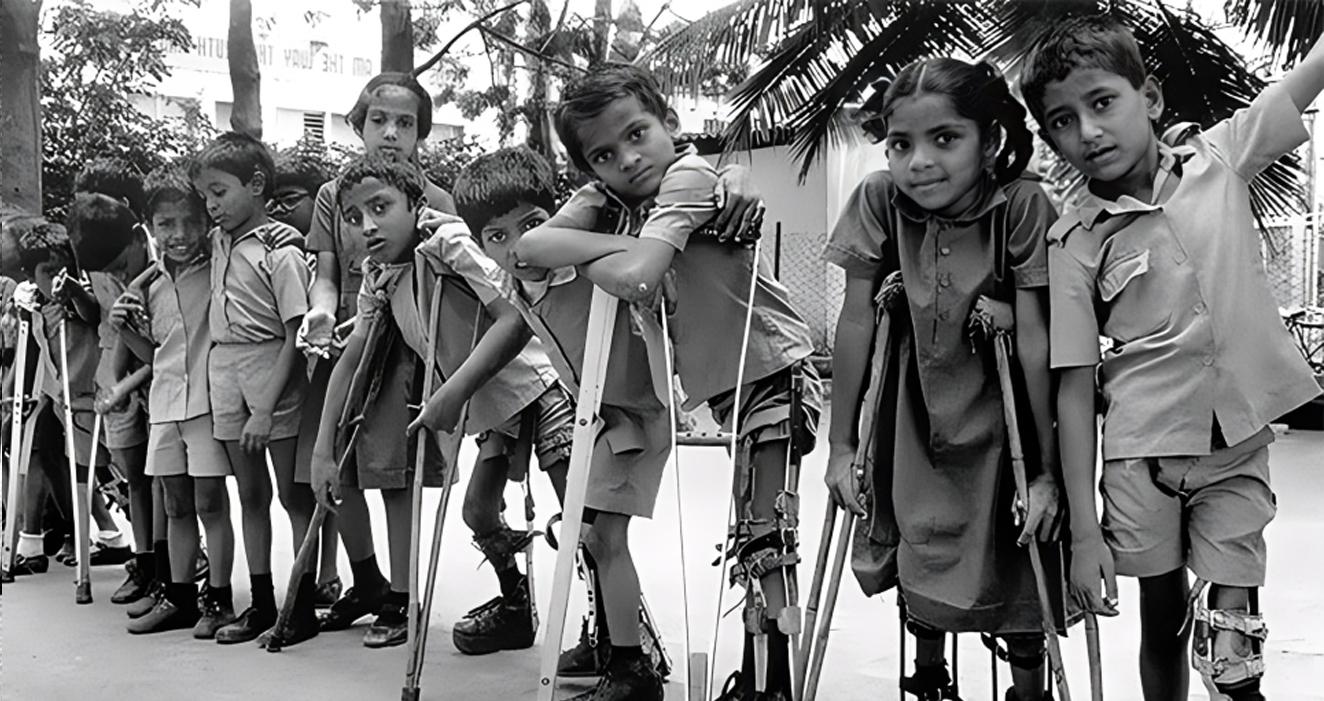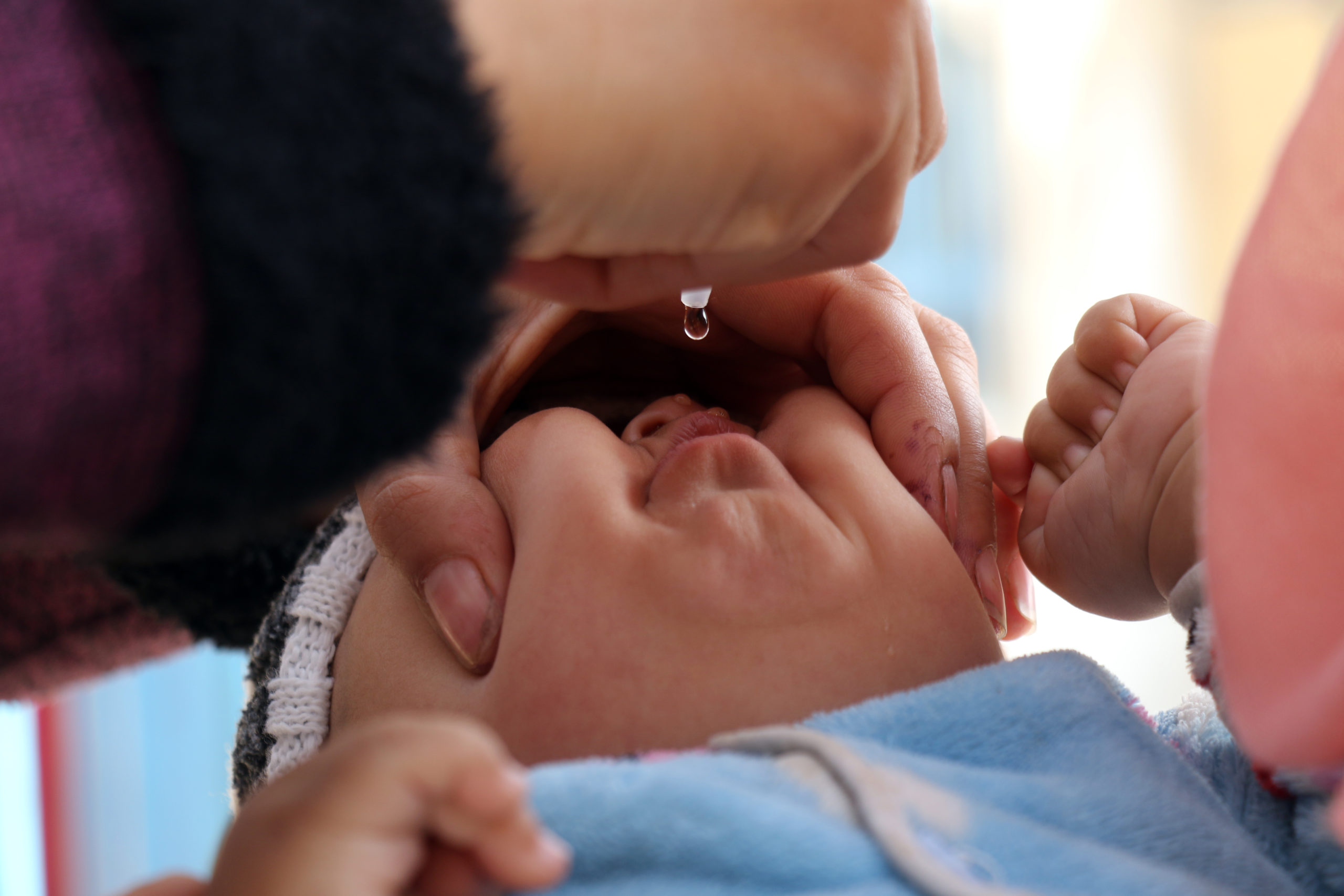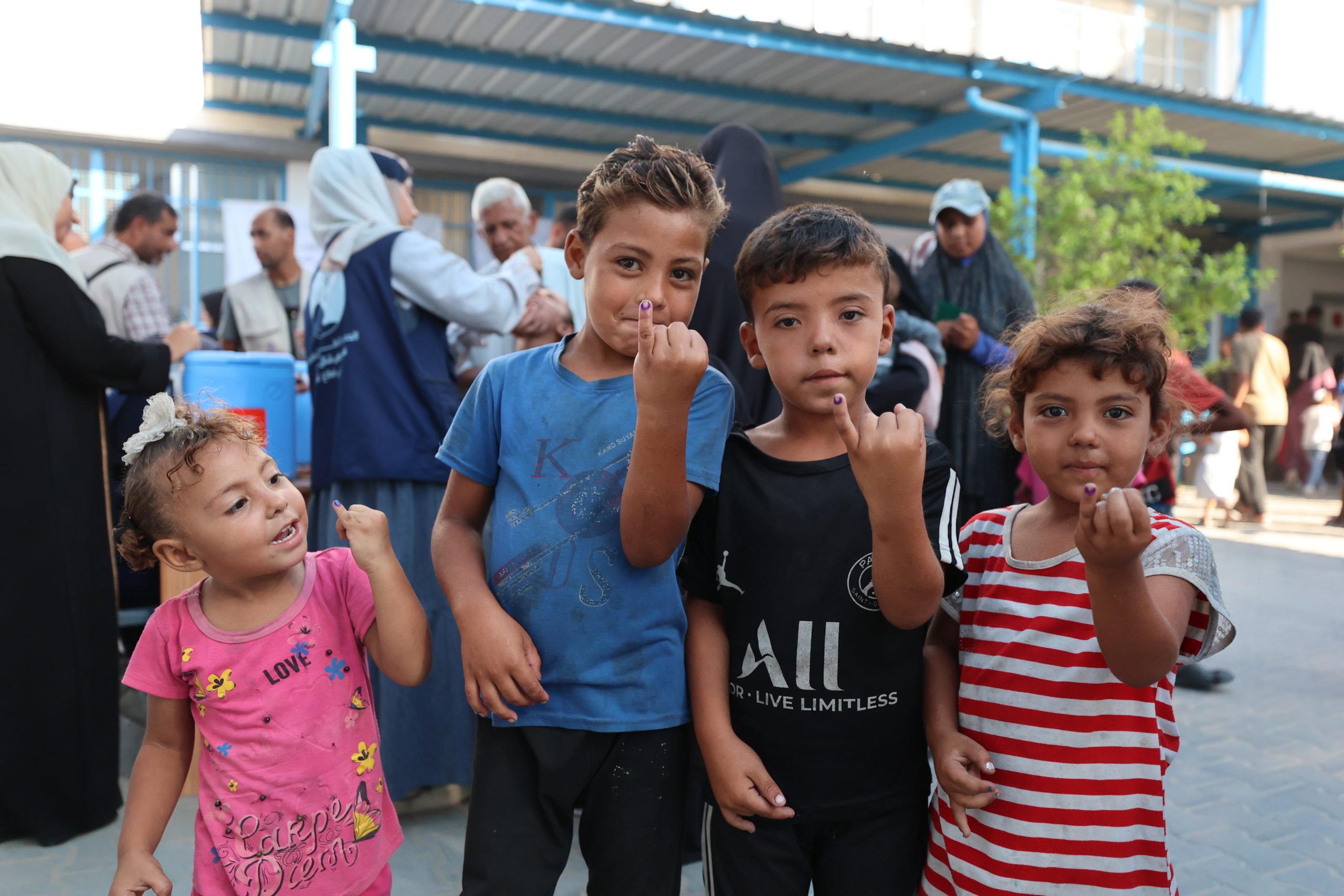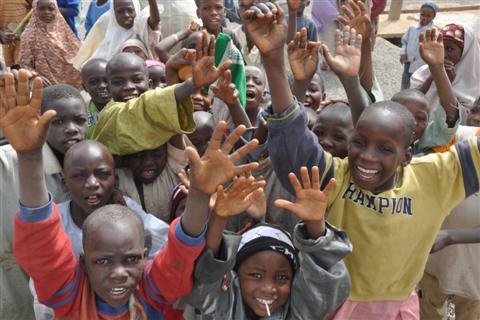
1 June 2011 – Nigeria has nearly tripled the proportion of children covered by routine immunization between 2006 to 2010, according to a new national study. The increase took place against the backdrop of aggressive supplementary immunization campaigns to eradicate polio.
The results of the National Immunization Coverage Survey (NICS), conducted in October 2010, indicate that 52% of Nigerian children aged 12-23 months are reported to be fully immunized, compared with just 18% in 2006. In 2003, when the first baseline study was undertaken, the corresponding figure stood at just 13%.
The study results clearly demonstrate how routine immunization services can be improved in a polio-endemic country even during frequent supplementary immunization rounds. In Nigeria, these mutually beneficial results are due to the strong leadership of Nigeria’s National Primary Health Care Development Agency (NPHCDA).
The results come at a critical time in the efforts to eradicate polio from Nigeria, with just 21 cases of the paralytic disease recorded in 2010 and eight in the first quarter of 2011 – the lowest number of cases ever-recorded. Global health leaders at the World Health Assembly in May 2011 acknowledged these gains.
The survey demonstrates that coverage of routine immunization contributes to the interruption of poliovirus as well as the sustained protection of children against other vaccine-preventable diseases. In individual states and zonal areas of southern Nigeria (in Nigeria’s administrative structure, several states form a ‘zone’) where delivery of routine immunization services is strongest, transmission of poliovirus has been stopped. In northern states, where coverage is lower, polio continues to paralyse children. In 2010, more than 50% of children paralysed by wild poliovirus had never received a dose of polio vaccine despite intensified efforts.
NPHCDA supported state and local government authorities to implement the approach known as ‘Reaching Every Ward’, which facilitates comprehensive coverage. Polio campaigns are used to disseminate key messages about routine immunization. In several states, polio campaign micro-plans – the detailed plans which drill down to the individual home level to ensure all children are vaccinated – have been adapted to support delivery of routine immunization services. Task Forces that support implementation of polio eradication activities in the highest-risk States and Local Government Areas include strengthening of routine immunization in their terms of reference: this too has contributed to the progress being registered
The NICS aims to estimate the levels of immunization coverage at national, regional and state levels. The survey is regarded by the Nigerian Government and international partners as the most accurate measure of routine immunization services, providing important insights into community and individual attitudes towards immunization.
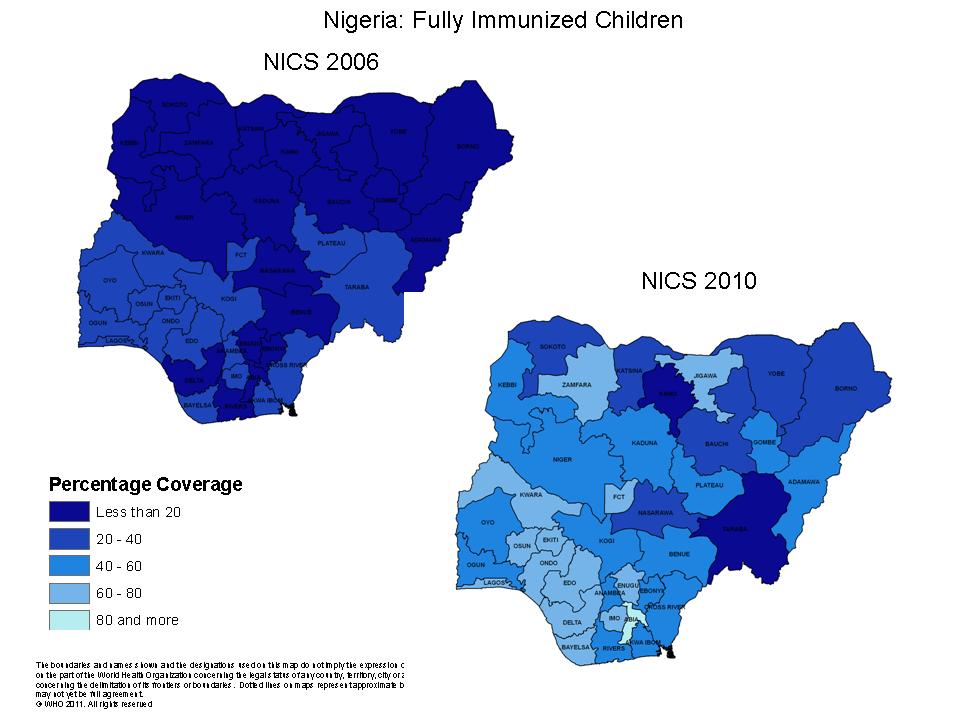
More than 19,000 households in selected settlements of every state were visited in October 2010 by trained representatives of an independent research company. Coverage was determined by vaccination card and the child’s history as recounted by the family at 52 weeks of age.
Coverage of DPT3 – a measurement of the number of children who are fully protected against three killer diseases Diphtheria, Pertussis and Tetanus and the most common measurement of basic routine services – increased nationally from 25% in 2006 to 68% in the 2010 study. Advances were recorded in all regions of the country.
This progress in Nigeria is tempered by the survey finding that almost one in four children do not receive any routine immunization. The country’s ability to bring this figure down will determine whether or not Nigeria can interrupt polio and deliver on its pledge to meet health-related Millennium Development Goals by 2015.
